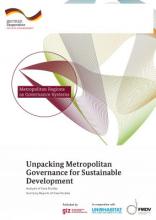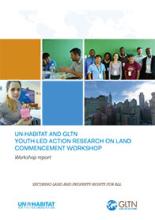Land Library
Welcome to the Land Portal Library. Explore our vast collection of open-access resources (over 74,000) including reports, journal articles, research papers, peer-reviewed publications, legal documents, videos and much more.
/ library resources
Showing items 1 through 9 of 66.There is a growing consensus in the international community about the impact of the transformative power of urbanization.
The Feasibility Discussion Paper is a key output of the feasibility phase of the NUP process in Liberia. It explains the context in which the policy will operate.
This case study analysis forms part of the publication series “Unpacking metropolitan governance” that documents experiences and gives hands-on approaches for stakeholders in the field of sustainable development of metropolitan regions.
The SPR 2015 provides a management record of sector progress over the financial years 2006/07-2014/15, identifying issues arising, as background for an analysis of main challenges for the sector.
The Ministerial Policy Statement is structured by Vote, as follows:
• Staff Establishment Structure Provides details of approved staff structure for each programme and project (including names of staff and vacant posts).
This is clearly demonstrated in the form of an organogram.
Madam Speaker and Honorable Members, the vision of my Ministry is “Sustainable Land Use, Land Tenure Security, Affordable, Decent Housing and Organized Urban Development”.
The land challenge is central to the broader youth dynamics of migration, employment, livelihoods and belonging. The more than 1.8 billion youth living worldwide represent not only a land challenge, but an untapped potential in moving the tenure security agenda forward.
Madam Speaker and Honorable Members, the vision of my Ministry is “Sustainable Land Use, Land Tenure Security, Affordable, Decent Housing and Organized Urban Development”. The Mission is “To ensure sustainable land management, planned urban and rural development and decent housing for all”.
This training toolkit aims to sensitize government agents about land administration, develop their capacity to address issues of corruption and to enhance transparency in the land sector.






